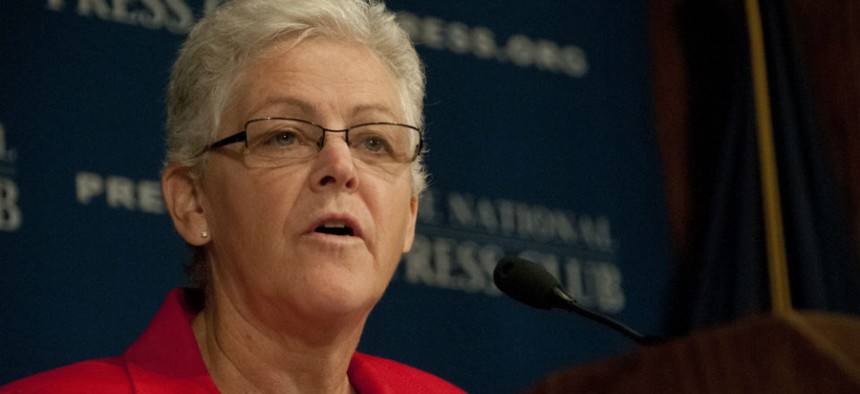
EPA chief Gina McCarthy Albert H. Teich / Shutterstock.com
EPA Chief: Teach Global Warming in Schools
Gina McCarthy wants children to have an understanding of climate science, but current policy leaves plenty of students without it.
Environmental Protection Agency Administrator Gina McCarthy wants schools to include climate science in their curricula.
Irish America magazine scored an interview with McCarthy, who grew up in a Boston area family with Irish roots. In one question, she was asked whether climate change should be part of the educational system.
"Very much so," she replied. "I think part of the challenge of explaining climate change is that it requires a level of science and a level of forward thinking and you've got to teach that to kids.
"People didn't have a sense of how dramatic climate change really is, and what it means for all of us. So that's been a challenge. But what's great about renewables is that when you put a solar panel on the roof of a school, you change the entire dynamic of education for the students. It's hands-on," she continued.
Among climate scientists and those who heed their consensus, McCarthy's sentiment is noncontroversial. The basic conclusion—that the climate is changing and that human activity is largely driving it—is overwhelmingly supported by peer-reviewed research.
EPA spokesman Tom Reynolds said via Twitter that McCarthy supports teaching climate science in schools, just as she supports teaching reading and math.
But McCarthy's comment comes amid a broader debate over the role of climate in the classroom, and a patchwork of existing science standards has created massive disparities in how global warming is taught in classrooms around the country.
A coalition that includes the National Science Teachers Association and the American Association for the Advancement of Science is seeking adoption of new standards that would require educators to inform students that human activity is the primary driver of global warming.
But the effort has faced pushback in conservative states like Wyoming, where state legislators voted to block adoption of the standards due to controversy over the climate-change provisions.
Elsewhere in the interview, McCarthy said that EPA's proposed rule to slash carbon emissions from power plants has been a boost to international climate policy talks:
"I just met with Edward Davey, the U.K. secretary of state for energy and climate, and he told me that the tone and tenor of the international discussions has changed because of the U.S. proposal on clean power plants and plan to cut back on carbon emissions. It shows a strong level commitment from [the U.S.,] one of the largest greenhouse gases emitters, about making reductions that are necessary." she said.
(Image via Albert H. Teich / Shutterstock.com)






